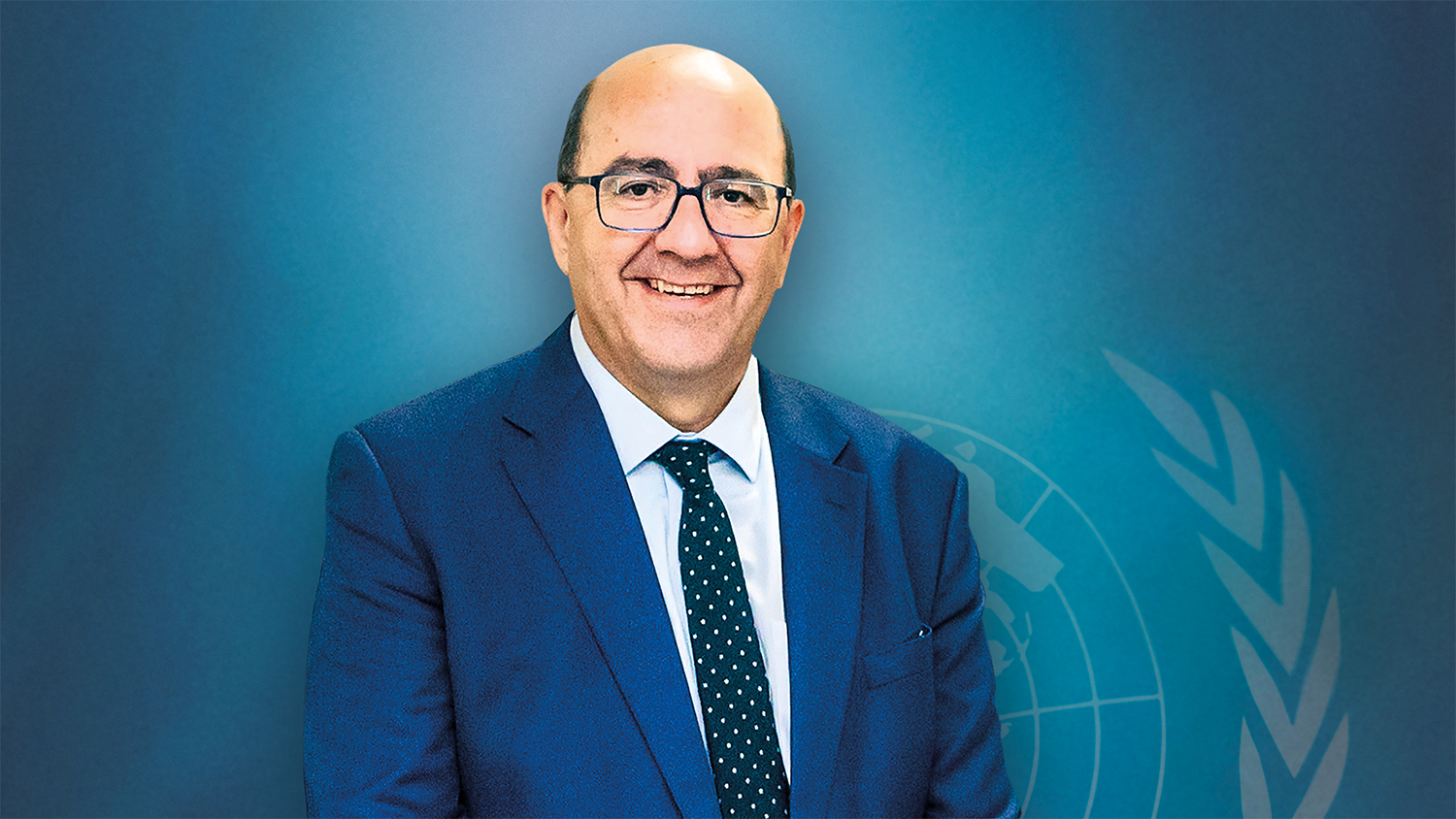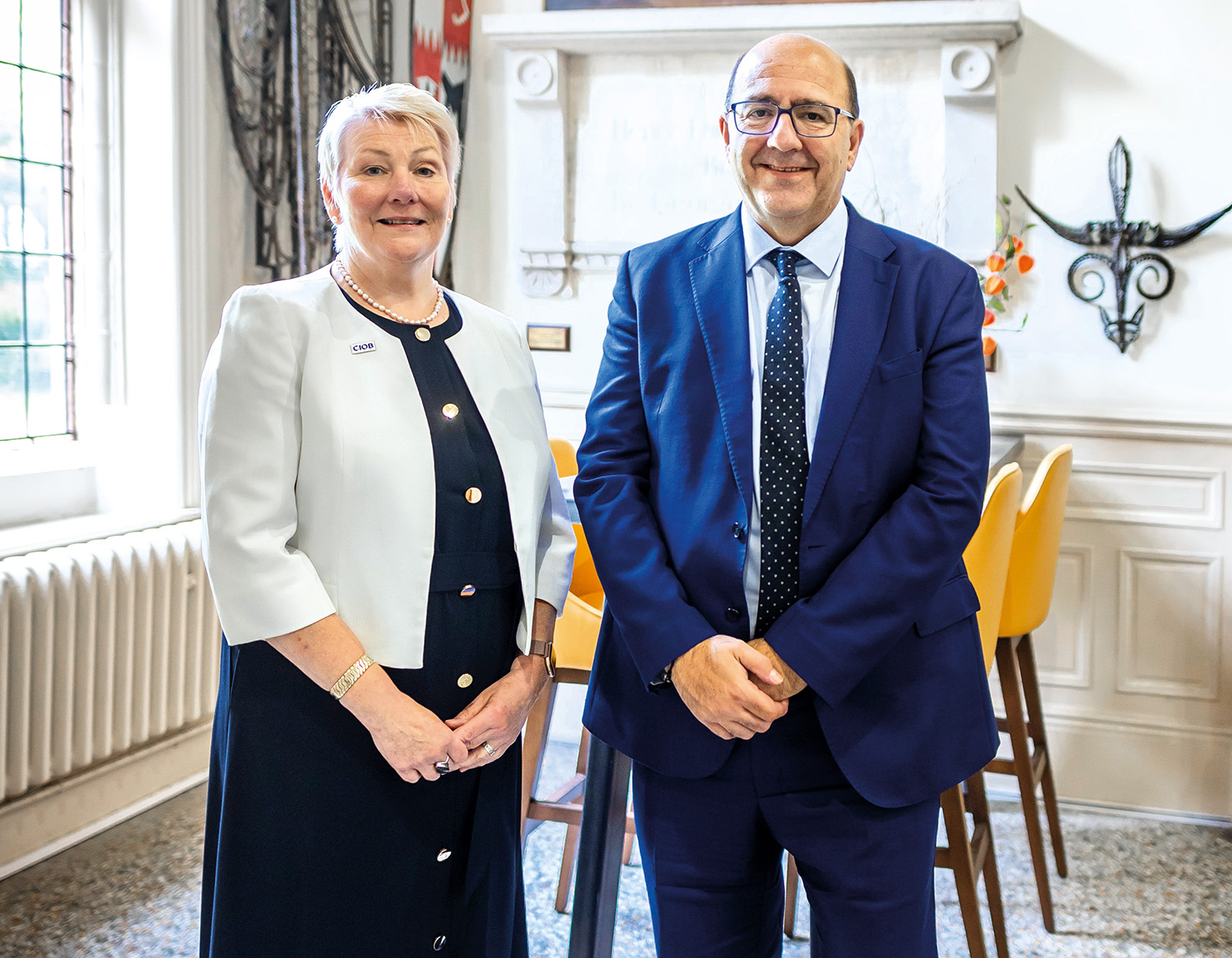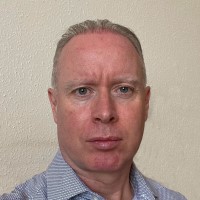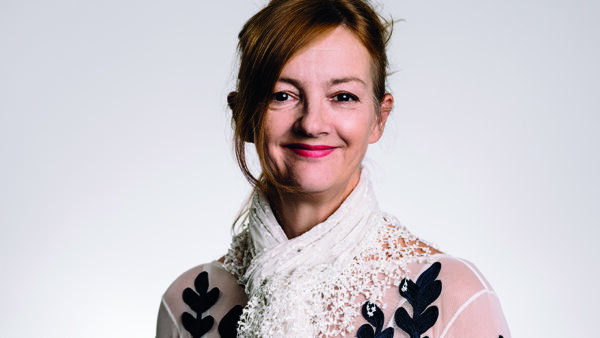Mike Kagioglou FCIOB: New president, new perspectives

New CIOB president Mike Kagioglou FCIOB wants construction to measure itself against the United Nations Sustainable Development Goals. Will Mann finds out more.
Mike Kagioglou returned to the UK last year to a new post at De Montfort University (DMU) in Leicester after almost three and a half years in Australia – and his spell down under taught him the importance of ‘challenging perspectives’.
“There’s a scene in The West Wing where the president’s staffers’ have their minds blown by seeing the Gall-Peters map of the world, which gives a completely different perspective on the globe from what most of us are used to, with southern hemisphere countries given more prominence,” he says.
Register for free or sign in to continue reading
This is not a paywall. Registration allows us to enhance your experience across Construction Management and ensure we deliver you quality editorial content.
Registering also means you can manage your own CPDs, comments, newsletter sign-ups and privacy settings.
“I learned a lot about challenging perspectives during my time in Australia – which is obviously on the other side of the world. And I think the construction industry could benefit from challenging perspectives too.
“We’re very compliance driven, and of course it’s important to meet the required regulations, but for me that should not be the destination we aspire, but the absolute minimum. The question then becomes: what is over and above compliance, what more could we be doing that is different and innovative? And I think that would challenge perspectives for most construction companies.”
CV: Mike Kagioglou FCIOB
Since July 2023: Pro-vice chancellor of research, business and innovation, De Montfort University, Leicester
2020-23: Dean of engineering, design and built environment; pro-vice-chancellor, global development (UK & EU), Western Sydney University, Australia
2013-20: Dean of art, design and architecture, University of Huddersfield
2001-13: Head of School of the Built Environment, University of Salford
FCIOB, FRICS, CMgr, FCMI
Kagioglou, who starts his term as CIOB president this month, thinks an agent for ‘challenging perspectives’ could be the 17 United Nations Sustainable Development Goals (SDGs). He can speak with authority, for DMU, where he is pro-vice chancellor for research and business innovation, is a global hub for SDG 16 – Peace, Justice, and Strong Institutions. It is the only university in the UK to be such a global hub.
Embracing UN SDGs
Kagioglou admits he’s not sure how many in the construction industry will have heard of the SDGs. But by adopting them as a theme for his presidency, he hopes it will prompt the question: what are they?
“The SDGs provide a framework that can help the industry become more innovative and sustainable – they are relevant to all the major issues construction is facing,” he says. “And I think every company in the industry should be looking at these SDGs and asking: ‘What are we doing in relation to those?’”
“I think the big construction companies, who already do great work in areas like social value and environmental sustainability, would be interested in mapping their organisations against the SDGs to see what their performance is,” he says.
“I would like to get a group of champions together from the industry, representatives from
10 or 20 companies initially, and create a task group for construction. It would allow them to showcase the excellent work they’re doing, gain a competitive advantage with clients, plus these examples can help others learn and drive the whole sector forward. So, I’m keen for any construction companies interested in the SDGs to get in touch with me.”
Higher education
Kagioglou can point to the higher education sector as a model to follow. “The Times Higher Education Impact Rankings are global performance tables that assess universities’ performance against the SDGs,” he says. “Institutions submit evidence each year about their progress, and they are ranked in the table. Over 1,900 universities take part, and my alma mater Western Sydney University has been the number one university in the world for three years in a row, which is unique and quite extraordinary.
“De Montfort University is also in the top 200 universities in the world. Importantly, universities are measured on their activities and output – how they impact the environment and society as a whole.
Mike Kagioglou on...
Academia
“There’s still a gap between academia and employers: on one side, we don’t see companies engaging with the research and innovation universities do; but then, academia is not always very good at explaining what the innovation is.”
Gender balance
“I championed this in Australia with Women in Engineering, and we worked with Multiplex on the new Western Sydney Airport where a high proportion of the construction managers were women. But there is still much work to do.”
Retrofit
“I’m involved with my university’s masterplan development for the next 10 years and we need a clear framework on these decisions. When we retrofit, we need to be sure we’re not generating more waste in the process and ending up with buildings that don’t meet our objectives and carbon reduction targets.”
“Construction has an impact on everyone around the globe – all eight billion of them! – the people we employ, those in supply chains, the end users of buildings we construct. So wouldn’t it be sensible to find a way of measuring and reporting that?”
Corporate plan theme
The SDGs also fit with many CIOB initiatives and with the goals in its corporate plan, Kagioglou believes.
“Environmental sustainability is obviously one corporate plan theme and the CIOB team – Amanda Williams as head of environmental sustainability, Chris Gorse as chair
of the advisory panel and Eddie Tuttle and his policy team – is already providing real practical leadership to help our sector.
“But the SDGs are about much more than environmental sustainability. CIOB’s work in EDI, building safety, modern slavery and social value all fit with the United Nations SDGs.
“Education is SDG 4, and this obviously is core to so much of the CIOB’s work – through apprenticeships, mentoring, the CIOB Academy, the Global Student Challenge and Tomorrow’s Leaders.”
CIOB, through its client engagement strategy, is ideally positioned to encourage SDG adoption in construction, Kagioglou believes.
“Mike Foy, during his presidency, did some great work to engage with clients and encourage them to promote professionalism through the sector, and that could be extended with the SDGs,” he says.

“Through the procurement processes, and the questions at prequalification, clients could ask questions about initiatives to end poverty, promote gender equality, reduce inequalities, how a contractor educates its workforce, what its modern slavery rules are, does it pay the minimum wage?
“Clients also can look at different alternatives when it comes to their building requirements. When presented with designs, what is the amount of waste generated through option A compared to option B? What are the operating costs likely to be and can we reduce them?
How can we design the building so that it can repurposed or deconstructed in the future?”
Modern professionalism
The overarching theme of CIOB’s corporate plan is ‘modern professionalism’ and Kagioglou argues that his mantra of ‘challenging perspectives’ is central to this.
“Modern professionalism is about challenging siloed ways of working,” he says. “Challenging a narrow view of what a construction manager is responsible for. Challenging traditional routes into professionalism; challenging old ways of attracting and developing talent; challenging old techniques for putting together a building.”
And Kagioglou is likely to find plenty of support for his philosophy. Thanks to CIOB’s membership growth internationally, the institute now has an increasingly broad and diverse network of people – who like challenging perspectives.











